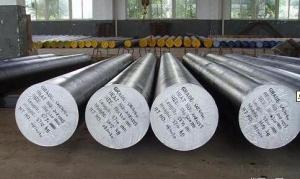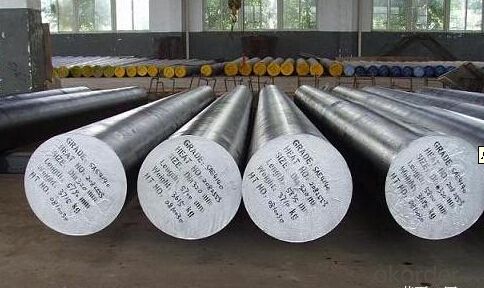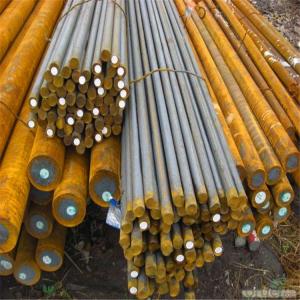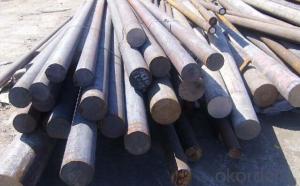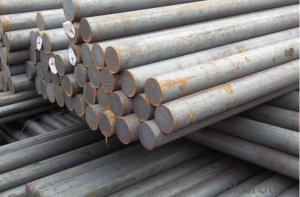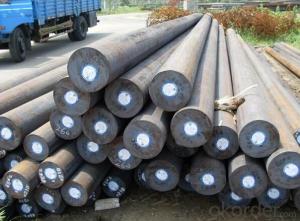Grade 34CrNiMo6/DIN1.6582/ AISI4340 Steel Round Bar
- Loading Port:
- Shanghai
- Payment Terms:
- TT OR LC
- Min Order Qty:
- 3 m.t.
- Supply Capability:
- 100000 m.t./month
OKorder Service Pledge
OKorder Financial Service
You Might Also Like
Specification
Grade 34CrNiMo6/DIN1.6582/ AISI4340 Steel Round Bar
Details Information of Grade 34CrNiMo6/DIN1.6582/ AISI4340 Steel Round Bar
| Name | Grade 34CrNiMo6/DIN1.6582/ AISI4340 Steel Round Bar |
| Shape | Round Bar/Square Bar/Flat Bar/Plate/Wire |
| Standard | GB/ASTM/SAE/AISI/DIN/JIS/EN/BS |
| Surface Treatment: | Black/Peeling/Polished/Machined |
| Delivery Condition: | Hot Rolled or Forged/Peeled or Black Surface |
| Test | SGS/UT 100% Elements Testing |
| Certificate: | ISO/Mill Certificate |
| Service: | 24 hours online service / |
| more than 20 years trading and manufacture | |
| Quality Assurance: | the third party inspection, such as SGS, BV, TUV…etc. is acceptable |
| Packaging Details: | Seaworthy Packaging or as per customer's packing instruction |
| Carbon structure round bar | Q195 Q235A Q235B 10# 20#-55# S45CB |
| Low alloy high strength round bar | Q345A/Q345C/Q345D Q345B Q345E |
| Alloy structure round bar | SAE51B20 20Cr 40Cr 40CrV 20CrMo/30CrMo/35CrMo/42CrMo 20CrMoA/30CrMoA/35CrMoA/42CrMoA/42Cr ML20CrMo/ML30CrMo/ML35CrMo/ML42CrMo B7/SCM435-440 20MnTiB 20CrMnMo 20CrMoH 42CrMoH 40MnB/40MnBH 30Mn2-40Mn2 27SiMn 50CrVA 30CrMnTi |
| Pinion steel | 20CrMnTi 20CrMnTiH 20CrMnTiHCS/20CrMnTiHLD Q20CrMnTi-1/Q20CrMnTi-2 |
| Sucker rod | 20-35CrMoA |
| Free-cutting steel | GT1215S |
| Spring steel | 60Si2MnA 65Mn |
| Ball bearing steel | GCr15 |
Chemical Composition of Grade 34CrNiMo6/DIN1.6582/ AISI4340 Steel Round Bar
| C | Si | Mn | P | S | Cr | Ni | Cu |
| 0.17-0.24 | 0.17-0.37 | 0.35-0.65 | ≤0.035 | ≤0.035 | ≤0.25 | ≤0.25 | ≤0.25 |
| Tensile strength (σb/MPa) | Yield strength (σb/MPa) | Elongation (δ5/%) |
| ≥410(42) | ≥245(25) | ≥25 |
Company Introduction of Grade 34CrNiMo6/DIN1.6582/ AISI4340 Steel Round Bar
CNBM International Corporation is the most import and export platform of CNBM group(China National Building Material Group Corporation) ,which is a state-owned enterprise, ranked in 270th of Fortune Global 500 in 2015.
With its advantages, CNBM International are mainly concentrate on Cement, Glass, Iron and Steel, Ceramics industries and devotes herself for supplying high quality series of refractories as well as technical consultancies and logistics solution.
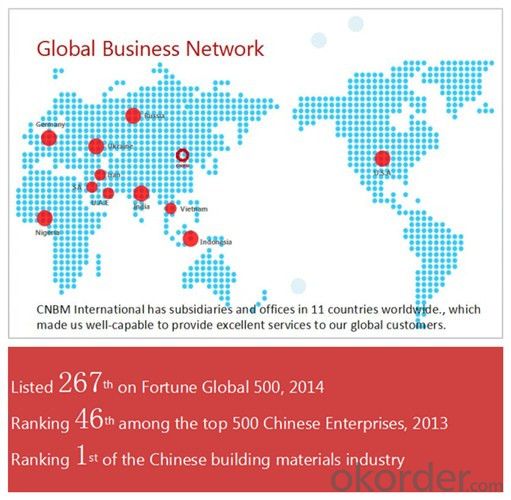
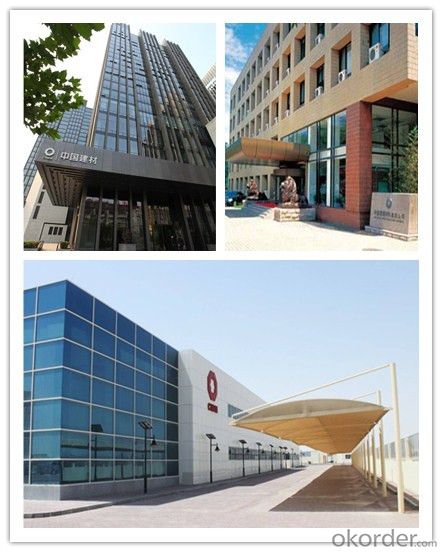
Certificates of Grade 34CrNiMo6/DIN1.6582/ AISI4340 Steel Round Bar
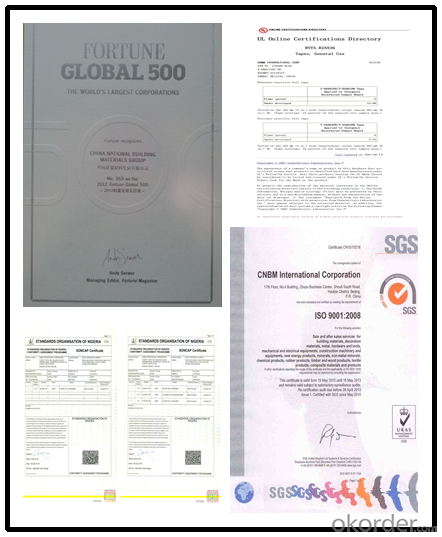
Packaging & Delivery of Grade 34CrNiMo6/DIN1.6582/ AISI4340 Steel Round Bar
Packaging Detail | Sea worthy packing /as per customer's packing instruction |
Delivery Detail | 15 ~ 40 days after receiving the deposit |
Products show of Grade 34CrNiMo6/DIN1.6582/ AISI4340 Steel Round Bar
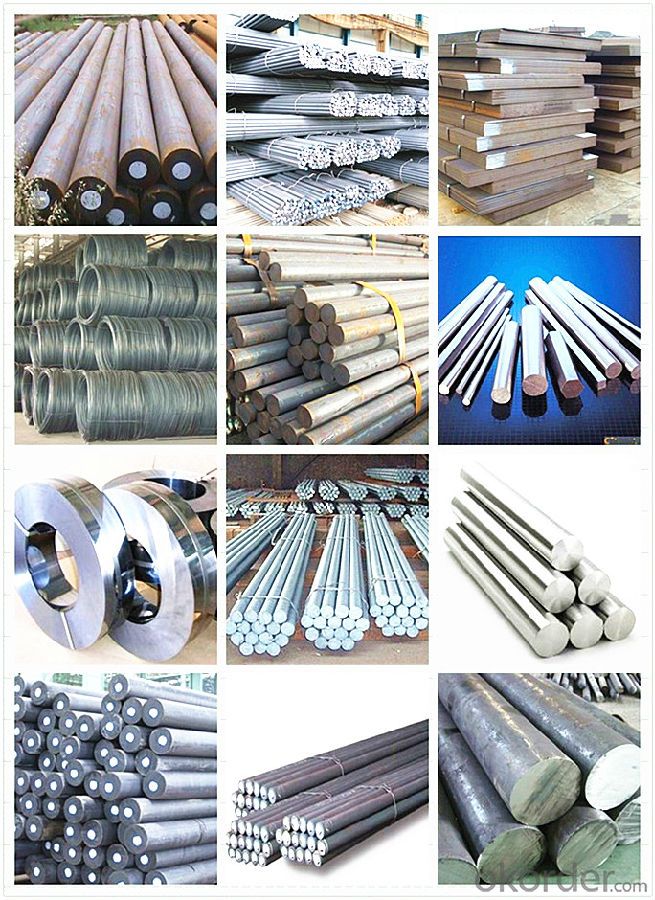
FAQ
Are you a trading company or manufacturer? | Manufacturer |
What’s the MOQ? | 3 metric ton |
What’s your delivery time? | 15-35 days after downpayment received |
Do you Accept OEM service? | Yes |
what’s your delivery terms? | FOB/CFR/CIF |
What's the Payment Terms? | 30% as deposit,70% before shipment by T/T |
Western Union acceptable for small amount. | |
L/C acceptable for large amount. | |
Scrow ,Paybal,Alipay are also ok | |
Why choose us? | Chose happens because of quality, then price, We can give you both. Additionally, we can also offer professional products inquiry, products knowledge train (for agents), smooth goods delivery, excellent customer solution proposals. |
What's your available port of Shipment? | Main Port, China |
What’s your featured services? | Our service formula: good quality+ good price+ good service=customer's trust
|
Where are your Market? | Covering more than 160 countries in the world |
- Q: What are the main factors affecting the toughness of special steel?
- The main factors affecting the toughness of special steel are its composition, microstructure, and heat treatment. Composition plays a crucial role in determining the toughness of special steel. The presence of certain alloying elements such as chromium, molybdenum, nickel, and vanadium can enhance the toughness of steel. These elements form solid solutions or precipitates in the steel matrix, which impede the propagation of cracks and improve the material's resistance to fracture. Microstructure also plays a significant role in determining the toughness of special steel. The size, shape, and distribution of the various phases in the steel, such as ferrite, pearlite, bainite, and martensite, affect its toughness. Fine-grained microstructures typically exhibit higher toughness due to their increased resistance to crack propagation. Heat treatment is another essential factor in controlling the toughness of special steel. The process of heating and cooling the steel can modify its microstructure, altering its toughness. Quenching, tempering, and annealing are common heat treatments used to improve the toughness of steel. Quenching and tempering, for example, can produce a microstructure with a desirable balance of hardness and toughness. Other factors that can affect the toughness of special steel include the presence of impurities, non-metallic inclusions, and the presence of residual stresses. Impurities and inclusions can act as stress concentrators and reduce the toughness of the steel. Residual stresses, which can arise during manufacturing processes, can also impact the toughness of the material by creating regions of high stress that can initiate crack formation. In summary, the composition, microstructure, heat treatment, presence of impurities and inclusions, and residual stresses are the main factors affecting the toughness of special steel. Understanding and controlling these factors are crucial for optimizing the toughness and performance of special steels in various applications.
- Q: What are the limitations of using special steel?
- There are several limitations to using special steel. Firstly, it is more expensive compared to regular steel, making it less accessible for certain industries or applications with budget constraints. Additionally, special steel may have limited availability and may require longer lead times for production and delivery. Moreover, the complex manufacturing processes involved in producing special steel can result in higher energy consumption and environmental impact. Lastly, the unique properties of special steel may not always be necessary or beneficial for every application, making it more suitable for specific industries or niche uses.
- Q: Can special steel be used for making electrical components?
- Indeed, electrical components can indeed be crafted using special steel. Special steel denotes a collection of steels boasting distinct properties and features that render them fitting for diverse uses, including electrical components. These steels are frequently tailored to possess exceptional electrical conductivity, minimal electrical resistance, commendable magnetic traits, and outstanding heat endurance. They are commonly employed in electrical engineering scenarios where utmost performance and dependability are indispensable, such as the production of transformers, motors, generators, and electrical transmission systems. Furthermore, special steel can also furnish protection against corrosion and elevated temperatures, thereby augmenting its aptness for the manufacturing of electrical components.
- Q: What are the different manufacturing processes used for special steel?
- There are several different manufacturing processes used for special steel, depending on the specific requirements and properties desired for the final product. Some of the commonly used manufacturing processes for special steel include: 1. Electric Arc Furnace (EAF): This process involves melting scrap metal in an electric arc furnace, where high electrical current passes through the electrodes to melt the metal. EAF is commonly used for producing stainless steel, tool steel, and alloy steel. 2. Basic Oxygen Furnace (BOF): BOF is a process where molten iron from a blast furnace is combined with scrap metal and oxygen is blown through the mixture to remove impurities. BOF is widely used for producing carbon and low-alloy steels. 3. Vacuum Degassing: This process is used to remove impurities like hydrogen, nitrogen, and sulfur from steel by subjecting it to a vacuum environment. Vacuum degassing is often employed for producing high-quality and ultra-clean special steels. 4. Continuous Casting: In this process, molten steel is poured into a water-cooled mold, where it solidifies into a continuous strand. Continuous casting helps to produce steel with a consistent shape, size, and internal structure, and is commonly used for semi-finished products like billets, slabs, and blooms. 5. Powder Metallurgy: This manufacturing process involves compacting metal powders into the desired shape and then sintering them at high temperatures to bond the particles together. Powder metallurgy is often used for producing special steels with specific properties, such as high strength, wear resistance, or corrosion resistance. 6. Heat Treatment: Heat treatment processes like annealing, quenching, and tempering are commonly employed to modify the microstructure and properties of special steels. These processes involve heating the steel to specific temperatures and then cooling it in a controlled manner to achieve desired hardness, toughness, and other mechanical properties. Each of these manufacturing processes has its own advantages and limitations, and the choice of process depends on factors such as the type of steel required, the desired properties, and the cost-effectiveness of the process for a particular application.
- Q: What are the different methods of surface ion nitriding for special steel?
- There are several methods of surface ion nitriding that can be used for special steel. These methods include: 1. DC Plasma Nitriding: This method involves the use of a direct current (DC) plasma to ionize nitrogen gas and create a plasma atmosphere. The special steel is placed in the plasma chamber and a high voltage is applied to accelerate the ions towards the surface of the steel, resulting in nitriding. 2. RF Plasma Nitriding: RF (Radio Frequency) plasma nitriding is a similar process to DC plasma nitriding, but instead of using a direct current, a radio frequency power supply is used to generate the plasma. This method allows for better control of the nitriding process and can be used for more complex geometries. 3. Pulse Plasma Nitriding: In this method, short pulses of high voltage are applied to the steel surface, creating a plasma discharge. The pulses are repeated at regular intervals, allowing for precise control over the nitriding process. This method is often used for steels with sensitive properties that can be affected by prolonged exposure to high temperatures. 4. Plasma Assisted Nitriding: This method combines plasma nitriding with other surface treatment techniques, such as physical vapor deposition (PVD) or chemical vapor deposition (CVD). The steel is first coated with a thin layer of a reactive material, and then nitrided in a plasma atmosphere. This combination of techniques can enhance the surface properties of the special steel, such as wear resistance or corrosion resistance. 5. Glow Discharge Nitriding: This method involves placing the special steel in a chamber filled with a nitrogen-rich gas, such as ammonia. A high voltage is applied to create a glow discharge, which ionizes the gas and generates nitrogen ions that diffuse into the surface of the steel. This method is commonly used for small parts or components with complex shapes. It is important to note that the selection of the most appropriate method for surface ion nitriding of special steel depends on factors such as the desired properties, the geometry of the steel, and the specific requirements of the application.
- Q: How are cobalt-based alloys used in dental applications?
- Cobalt-based alloys are used in dental applications due to their unique properties such as high strength, corrosion resistance, and biocompatibility. They are commonly used in dental prosthesis, crowns, and bridges because they can withstand the harsh oral environment and provide long-term durability. Additionally, these alloys allow for precise and accurate fitting, ensuring optimal functionality and aesthetic appeal in dental restorations.
- Q: What are the different international standards for special steel?
- Globally recognized are several international standards for special steel. Among the most prominent are the following: 1. AISI (American Iron and Steel Institute): Widely utilized in North America, AISI standards, also known as SAE (Society of Automotive Engineers) standards, provide specifications for diverse applications of special steel alloys. 2. ASTM (American Society for Testing and Materials): Encompassing a wide range of materials, including special steel, ASTM standards outline the chemical composition, mechanical properties, and testing procedures for various grades. 3. DIN (Deutsches Institut für Normung): Commonly employed in Germany and Europe, DIN standards define the composition, mechanical properties, and other characteristics of special steel alloys. 4. JIS (Japanese Industrial Standards): Extensively embraced in Japan and internationally recognized, JIS standards offer specifications for special steel alloys utilized in industries such as automotive, machinery, and construction. 5. BS (British Standards): Widely applied in the United Kingdom, BS standards furnish specifications for special steel alloys covering aspects such as chemical composition, mechanical properties, and testing procedures. 6. ISO (International Organization for Standardization): Globally acknowledged, ISO standards provide specifications for a broad range of materials, including special steel. These standards ensure uniformity and quality in the production and usage of special steel alloys across different countries. Crucial in ensuring the quality, compatibility, and performance of special steel alloys in various industries globally, these international standards establish a common framework for manufacturers, suppliers, and consumers to communicate and guarantee that the steel meets specific requirements and industry standards.
- Q: How does special steel perform in high-vibration applications?
- Special steel performs exceptionally well in high-vibration applications due to its superior strength, durability, and resistance to fatigue. These properties enable it to withstand intense vibrations without compromising its structural integrity, resulting in enhanced performance and extended service life in such demanding conditions.
- Q: What are the different non-destructive testing techniques used for special steel?
- There are several non-destructive testing (NDT) techniques that are commonly used for special steel to ensure its quality and integrity without causing any damage. These techniques are essential in industries where special steel is used, such as aerospace, automotive, and construction, to ensure that the material meets the required specifications and standards. Some of the commonly used NDT techniques for special steel are: 1. Ultrasonic Testing (UT): This technique involves the use of high-frequency sound waves to detect internal flaws, such as cracks, voids, or inclusions, in special steel. UT is highly effective in detecting subsurface defects and is widely used due to its versatility and accuracy. 2. Magnetic Particle Testing (MT): MT is a technique that uses magnetic fields and iron particles to detect surface or near-surface defects in special steel. It is particularly useful in identifying defects like cracks, seams, or laps, as the magnetic particles will accumulate at these locations, making them visible under proper lighting conditions. 3. Liquid Penetrant Testing (PT): PT is a widely-used method for detecting surface defects in special steel. It involves applying a liquid penetrant to the surface of the material, which seeps into any surface cracks or defects. After a specified time, the excess penetrant is removed, and a developer is applied to make the defects visible. 4. Eddy Current Testing (ET): ET utilizes electromagnetic induction to detect surface or near-surface defects in special steel. It is particularly useful in detecting cracks, corrosion, or metal loss in conductive materials. ET is a fast and accurate method, making it suitable for high-speed production environments. 5. Radiographic Testing (RT): RT involves the use of X-rays or gamma rays to examine the internal structure of special steel. It can detect various defects, including porosity, inclusions, and cracks. RT provides detailed images that help identify the location, size, and severity of defects. 6. Visual Testing (VT): VT is a simple yet crucial technique that involves a visual examination of the surface of special steel. It helps identify surface defects like scratches, dents, or corrosion. Although VT is not as sensitive as other NDT techniques, it is often used as a preliminary inspection method. Each of these non-destructive testing techniques has its own advantages and limitations. The selection of the appropriate technique depends on factors such as the type and size of the special steel, the required inspection depth, and the specific defects that need to be detected. By using a combination of these techniques, manufacturers and inspectors can ensure the quality and reliability of special steel products.
- Q: How is special steel used in the automotive industry?
- Special steel is used in the automotive industry for various applications such as manufacturing engine components, transmission systems, and chassis parts. Its high strength, durability, and resistance to corrosion make it ideal for ensuring the safety, performance, and longevity of vehicles. Additionally, special steel is used in the production of specialized tools and machinery required for automotive manufacturing processes.
Send your message to us
Grade 34CrNiMo6/DIN1.6582/ AISI4340 Steel Round Bar
- Loading Port:
- Shanghai
- Payment Terms:
- TT OR LC
- Min Order Qty:
- 3 m.t.
- Supply Capability:
- 100000 m.t./month
OKorder Service Pledge
OKorder Financial Service
Similar products
Hot products
Hot Searches
Related keywords
